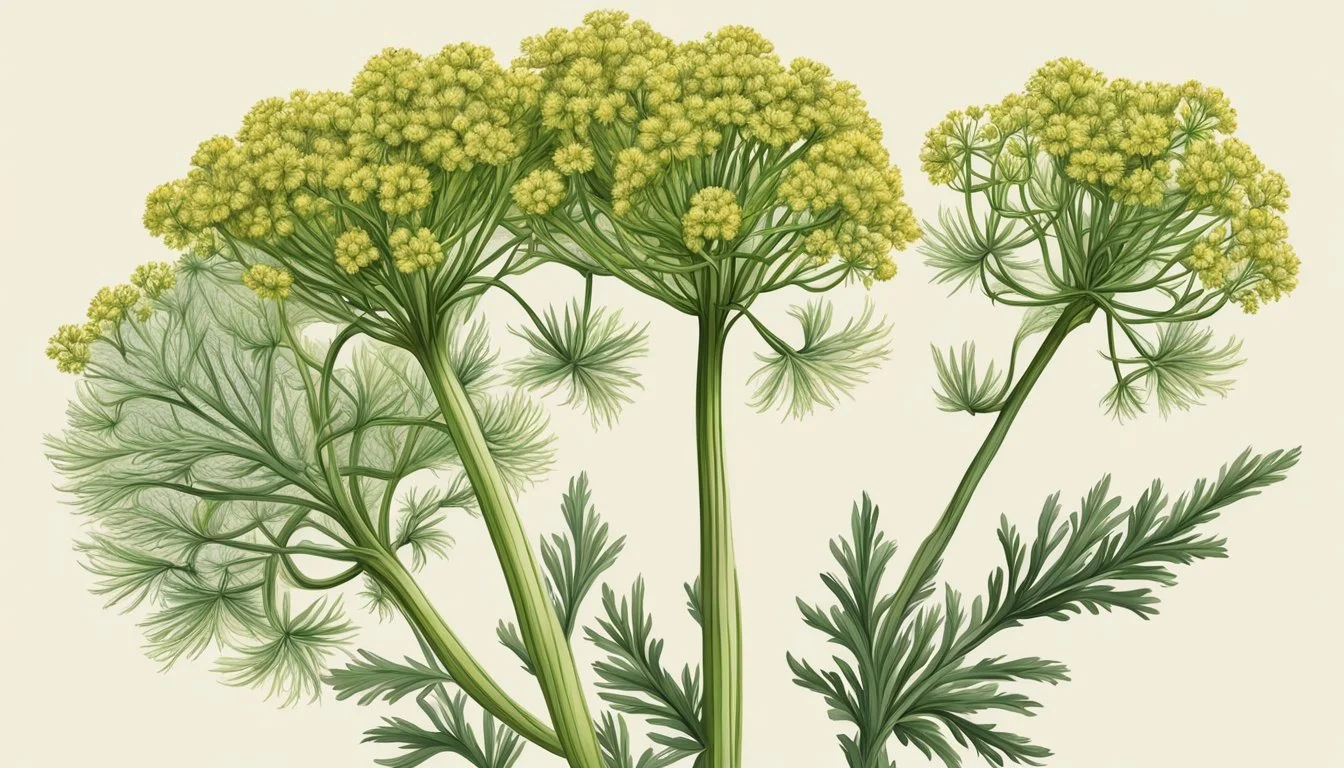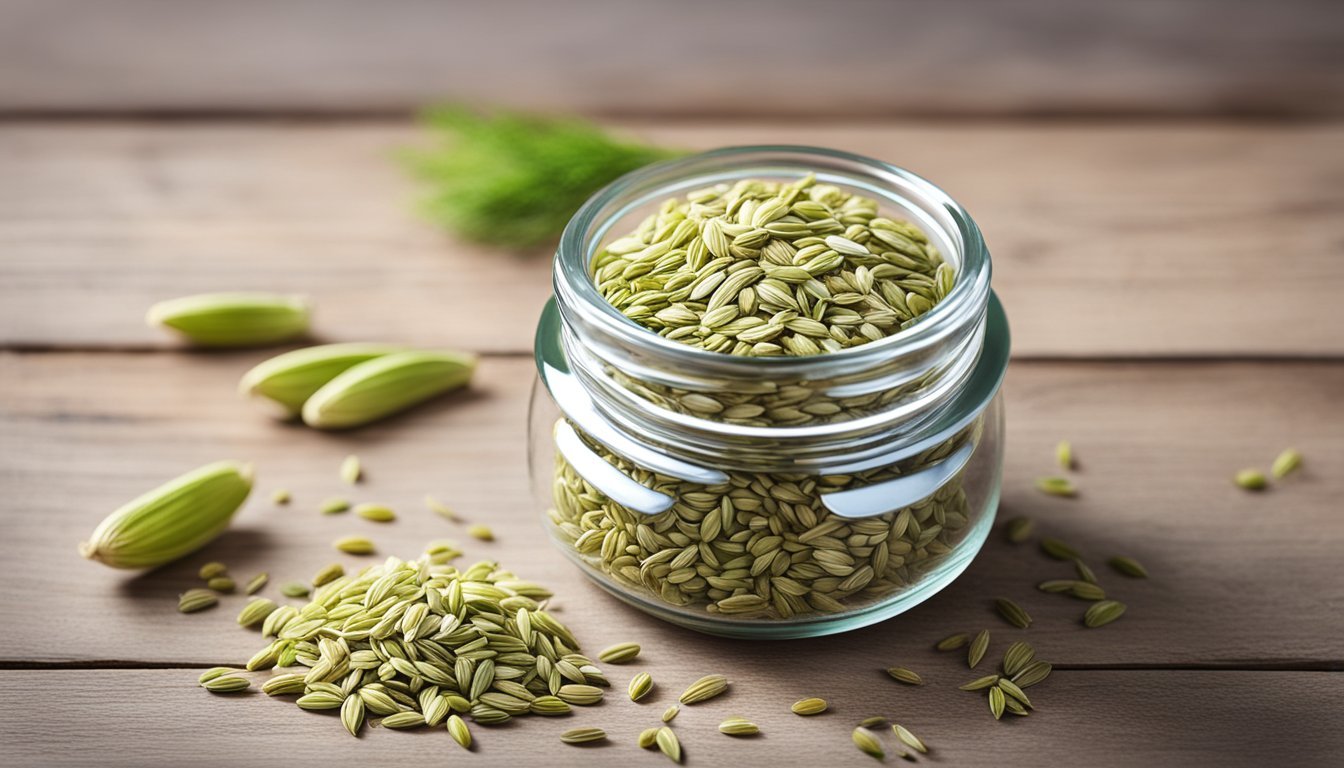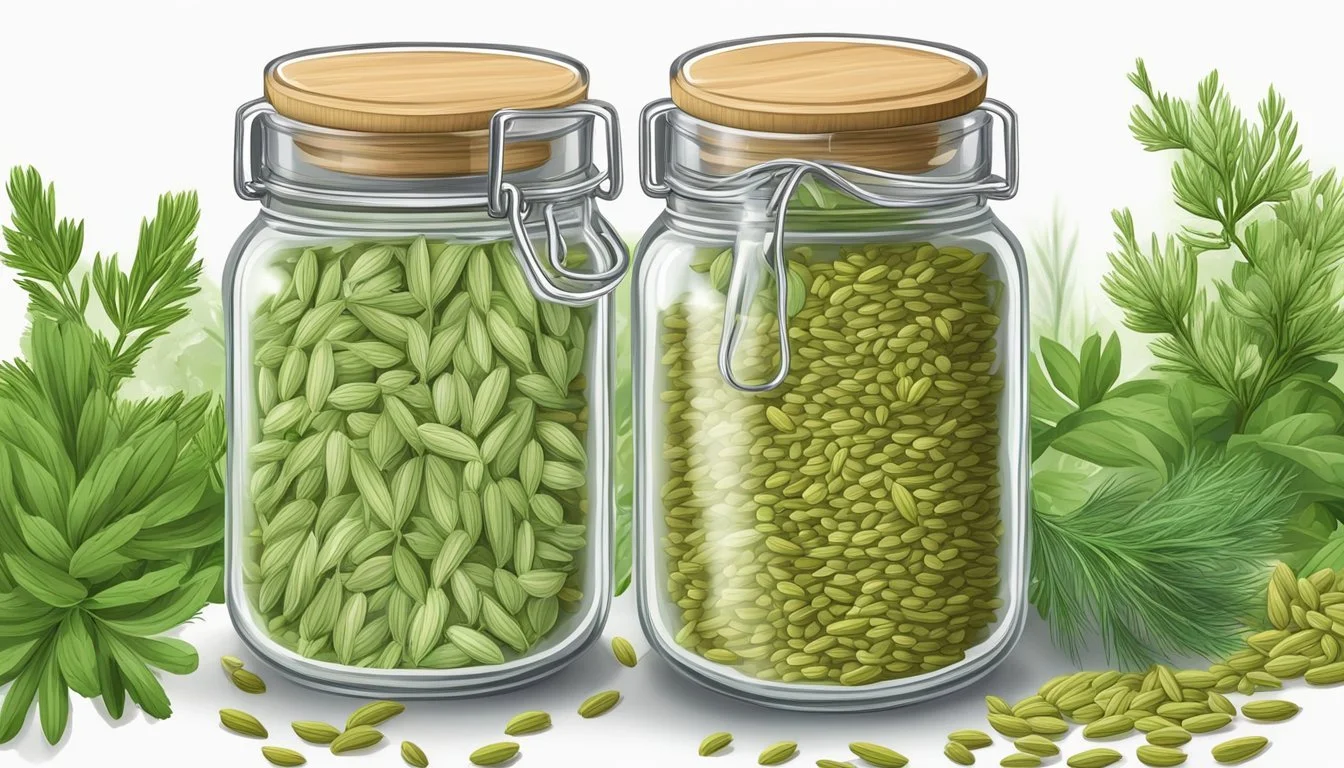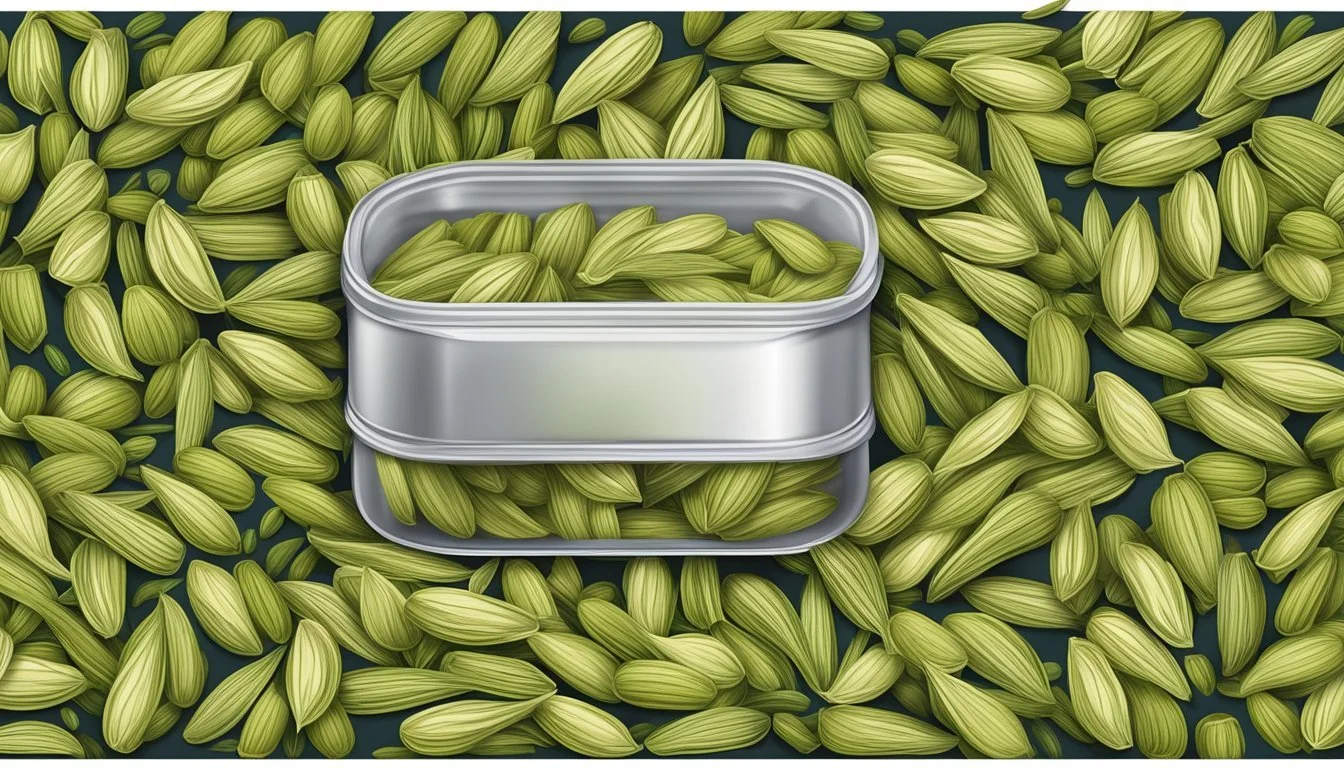How Long Do Fennel Seeds Last?
Shelf Life and Storage Tips
Fennel seeds (how long do seeds last?) are a popular spice derived from the fennel (how long does fennel last?) plant, cherished for their licorice-like flavor that complements a variety of culinary dishes. The longevity of fennel seeds in the pantry plays a significant role in their usage since it determines how long they can impart their desired flavor in cooking. They do not have a definitive expiration date but instead, they gradually lose their potency over time. The typical shelf life of fennel seeds is remarkably long compared to other spices, lasting anywhere from two to four years if stored under optimal conditions.
Proper storage is critical to maintaining the flavor and aroma of fennel seeds, which consists of keeping them in an airtight container away from heat, moisture, and direct sunlight. This preserves their essential oils, which are responsible for their distinct taste and smell. While fennel seeds remain safe to consume even after their peak quality has passed, their sensory attributes diminish, leading to a less impactful flavor profile in dishes.
It is, therefore, advisable for users to pay attention to the storage practices and to periodically check their fennel seeds for freshness, gauging it by aroma and flavor before use in recipes. Through this approach, culinary enthusiasts and chefs alike ensure the seasoning derived from these seeds is effective and their dishes flavorful.
Fennel Seed Fundamentals
Exploring the essence of fennel seeds reveals their significance as a spice with a rich history, utilized for both their flavor and aromatic properties. They are a key ingredient in a variety of culinary traditions and are available in multiple varieties, each with its own unique characteristics.
Understanding Fennel Seeds
Fennel seeds come from the flowering plant species in the carrot family. They are small, green or brownish in color, and possess a sweet, licorice-like flavor and aroma that intensifies upon cooking. Regarded for their versatility, fennel seeds serve not only as a culinary spice but also have applications in traditional medicine.
Key Characteristics:
Flavor: Sweet and similar to licorice (how long does licorice last?)
Aroma: Distinctive and pronounced
Color: Typically green or brown
Culinary Uses of Fennel Seeds
In cooking, chefs employ fennel seeds to impart a distinctive anise-like taste to various dishes. They can be used whole or ground, releasing their flavor when toasted, crushed, or chewed. Fennel seeds feature prominently in Mediterranean and Indian cuisines, enriching the taste profiles of meat dishes, soups, bread, and desserts.
Popular Culinary Applications:
Meat dishes: Seasoning for pork, lamb, and fish
Breads and pastries: Incorporated for an added flavor dimension
Confectioneries: Used in sweet treats like candies and liqueurs
Fennel Seed Varieties
There are three main varieties of fennel, each with its own specific use and flavor profile. Sweet fennel is typically used for its seeds and fronds, common fennel is cultivated for both its bulbs and seeds, and bronze fennel is appreciated for its attractive foliage and is often used as a garnish.
Fennel Varieties:
Sweet Fennel: Favored for its sweeter seeds
Common Fennel: Both bulbs and seeds are used
Bronze Fennel: Known for its ornamental qualities
Optimal Storage Conditions
To maximize the shelf life of fennel seeds, it is essential to maintain ideal storage conditions that prevent deterioration of quality and potency over time.
Ideal Temperature and Humidity
A cool and dry environment is optimal for the longevity of fennel seeds. The ideal temperature should be around or lower than 42°F (5.6°C), with a humidity level that, when combined with the temperature in degrees Fahrenheit, totals less than 100. This balance helps to significantly extend the seeds' life expectancy.
Protecting from Light and Air
Exposure to direct sunlight can degrade the quality of fennel seeds, so it’s important to store them in a dark place. Use containers that are opaque or place them in a pantry to shield them from light. Additionally, limiting exposure to air can preserve freshness and prevent the seeds from becoming moist.
Container Selection
Choosing the right containers is crucial for fennel seed storage. Use airtight containers made of glass or metal to prevent exposure to air and humidity. Alternatively, if availability is limited, heavy-duty plastic bags sealed tightly can serve as a temporary measure.
Maximizing Fennel Seed Longevity
To ensure the longest shelf life, consider freezing fennel seeds in an airtight container for up to six months. However, frequent changes in temperature as a result of taking the seeds in and out of the freezer can compromise their quality. For refrigerator storage, ensure the container is sealed properly to protect against the moist environment.
By adhering to these specific storage guidelines, the shelf life and quality of fennel seeds can be maximized, reducing waste and preserving their characteristic flavor.
Shelf Life and Quality Indicators
Fennel seeds, known for their distinct licorice-like flavor, do not have a specific expiration date but they do lose potency over time. Effective storage plays a critical role in preserving their quality indicators such as smell and taste and extending their shelf life.
Expected Shelf Life
Unopened/Sealed: Typically, when stored in an unopened or sealed air-tight container, fennel seeds can last up to 4 years while maintaining optimal quality.
Opened: Once the packaging is opened, fennel seeds should retain their quality for up to 2 years provided they are stored correctly, although they may start to lose their potency after six months.
Signs of Deterioration
As time passes, fennel seeds might exhibit signs of deterioration. Here are specific indicators:
Smell: A diminishing aroma can indicate the seeds are past their prime.
Taste: Less flavorful or a lack of the characteristic fennel bite.
Appearance: A change in color could suggest they are losing their essential oils.
Preventing Spoilage and Pests
The longevity of fennel seeds heavily relies on storage conditions. Follow these steps to prevent spoilage and pests:
Container: Store in an air-tight container to protect from moisture and air.
Environment: Keep them in a cool, dry place away from direct sunlight.
Pests: Regularly check for any signs of infestation by pests which can quickly compromise the seeds' viability.
Maintaining these conditions ensures that the fennel seeds stay fresh for as long as possible while preserving their characteristic flavor which is essential for culinary uses.
Growing and Harvesting Fennel Seeds
Fennel, a flavorful Mediterranean herb, is both a culinary delight and a garden aesthetic, growing well under full sun conditions. With the correct guidance, one can successfully cultivate and harvest fennel seeds for a variety of uses.
Fennel Cultivation
When growing fennel, it's crucial to plant the seeds in a location that receives full sun. The soil should offer good drainage to prevent root rotting. For those starting seeds indoors, it's best to sow 2-3 weeks before the last frost date in spring. Transplanting should occur once seedlings have developed two true leaves. In the garden, seeds are planted about 1/4 inch deep, spaced approximately 12 inches apart to ensure that the plants have ample room to flourish. It's essential to note that fennel can become a perennial if the conditions mimic its native Mediterranean environment.
Harvesting Techniques
As summer progresses into early fall, fennel plants will produce tall, green stalks and umbrella-shaped seed heads with yellow flowers. Once the flowers brown and seeds ripen, it's time to harvest. Cutting the seed heads from the stalks should be done carefully, as to not lose the precious seeds. Afterward, the seeds should be placed on a paper towel or screen to dry. One can facilitate drying by leaving the seeds in a warm, dry place away from direct sunlight for several days until they feel dry to the touch.
Germination and Plant Lifecycle
Fennel seeds typically germinate within 7-10 days after sowing when kept under the proper conditions—moist soil and warm temperatures. Throughout the plants' lifecycle, fennel requires little maintenance aside from adequate watering and thinning of the sprouts. It's possible to see fennel sprouts transitioning from germination to robust plants, ready for transplanting, within a few weeks. The lifecycle of fennel, from seed to full maturity, usually spans the duration of the spring and summer months, ending as seed heads form and the cycle begins anew.
Running FAQs on Fennel Seeds
In considering the longevity, utility, and preservation of fennel seeds, one discovers that temperature, humidity, and storage play crucial roles. Knowing how to manage these factors ensures that fennel seeds retain their aroma and flavor, which are essential for their culinary uses.
Shelf Life FAQs
How long can fennel seeds be stored?
Fennel seeds can typically last up to 4 years if stored correctly, with factors such as humidity levels and temperature affecting this duration.
Do fennel seeds ever expire?
While fennel seeds don't have a strict expiration date, their quality may diminish over time. It's important to check for loss of smell or an off taste to determine if they're past their prime.
Usage FAQs
Are there any tips for cooking with fennel seeds to maintain their flavor?
To keep their characteristic flavor intact, one can:
Toast them lightly to release oils.
Add them early in the cooking process alongside other aromatics.
Can you use fennel seeds past the 4-year mark?
If fennel seeds have been stored properly and still have their aroma and flavor, they can be used for cooking past the 4-year mark, although their potency may decline.
Storage FAQs
What are the ideal storage conditions for fennel seeds?
Best stored in a cool, dry, dark place such as a pantry.
Maintain a consistent temperature and protect them from humidity.
Which containers should be used for storing fennel seeds?
Use airtight containers, preferably glass jars, to protect from air and moisture.
Can you refrigerate fennel seeds?
Yes, refrigeration can extend their shelf life, but ensure they're in an airtight container to prevent moisture absorption.
Associated Health Benefits
Fennel seeds not only add flavor to dishes but also carry a variety of health benefits. They are rich in nutrients and widely recognized in alternative medicine for their digestive properties.
Nutritional Value of Fennel Seeds
Fennel seeds are a small but mighty source of nutrition. They contain minerals such as calcium, potassium, manganese, iron, and magnesium. One teaspoon of fennel seeds approximately provides:
Calcium: Essential for bone health and muscular function.
Iron: Vital for the formation of hemoglobin and oxygen transport.
Fiber: Aids in digestion and promotes satiety.
Vitamins: Vitamin C in fennel seeds supports the immune system.
Fennel Seeds in Alternative Medicine
In alternative medicine, fennel seeds are used as a digestive aid. They contain anethole, a compound that can help soothe the digestion and small amounts may support milk production in nursing women. Traditionally, fennel seeds have been utilized to:
Improve digestion: They may help in reducing digestive discomforts.
Diuretic action: Fennel seeds are believed to help rid the body of excess water and salt.
Complementary Herbs and Plants
When cultivating fennel, understanding its relationship with other plants enhances both growth and flavor. Certain herbs and vegetables can thrive when planted alongside fennel, while others may suffer from adverse interactions.
Common Companions
Fennel pairs well with a variety of herbs in the garden. Notably, dill (how long does dill last?) and coriander, both members of the Apiaceae family like fennel, can be planted in close proximity. These herbs share similar growth requirements and can benefit from joint planting:
Dill and Coriander: Aid in repelling pests due to their strong aromas.
Parsley: Another fragrant companion, it enjoys the same well-drained soil.
Aromatic and Ornamental Combinations
Fennel's feathery and yellow flowers make it an aesthetically pleasing choice for ornamental gardens, alongside other robust herbs:
Sage: This aromatic herb can complement fennel's ornamental nature.
Flowering plants: Species with similar soil and sun exposure requirements to fennel can also share space, enhancing visual diversity.
Note: While fennel has attractive qualities, its high competitiveness for nutrients occasionally makes it a challenging ornamental partner.
Adverse Plant Interactions
Certain plants are negatively affected by fennel's presence, due to allelopathic chemicals it releases:
Beans and Tomatoes: They may struggle to grow near fennel and should be planted in a separate area of the garden.
Carrots and Parsnips: As fellow members of the carrot family, they are susceptible to the same pests and diseases and should not be planted together to prevent spread.
Tip: It is vital to maintain good distances between fennel and sensitive plants to ensure healthy, productive gardening. Additionally, ensuring a thriving garden includes using quality compost and guarding against the first frost, which fennel can be sensitive to.
Conclusion
Fennel seeds, when stored properly, exhibit a stable shelf life. They can maintain quality in terms of flavor, aroma, and germination for a significant period. Storage is key for preserving their integrity; a cool, dark, and dry environment is ideal for this purpose.
A comparison of various sources suggests the following regarding the shelf life of fennel seeds:
Up to 4 years with optimal storage conditions.
A two-year lifespan is commonly noted, with a progressive decline in potency after six months.
Quality indicators such as taste and smell may diminish gradually, but this does not render fennel seeds unsafe for consumption. To assess quality, one can note changes in flavor and aroma over time.
For gardeners, successful germination typically occurs within 7 to 14 days in controlled temperature, highlighting the vitality of fresh seeds.
In summary, the longevity of fennel seeds hinges on their treatment post-harvest. Proper storage not only elongates their shelf life but also ensures the retention of their characteristic qualities. While fennel seeds remain safe to use past their peak flavor time, they are at their prime within the first few years given adequate storage conditions.








